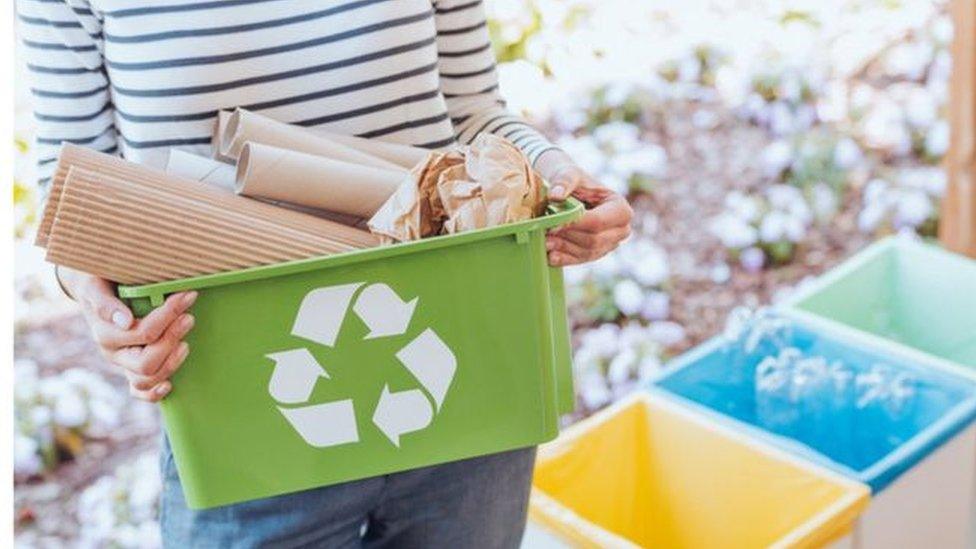Recycling: Confidential Stormont papers turned into toilet roll
- Published
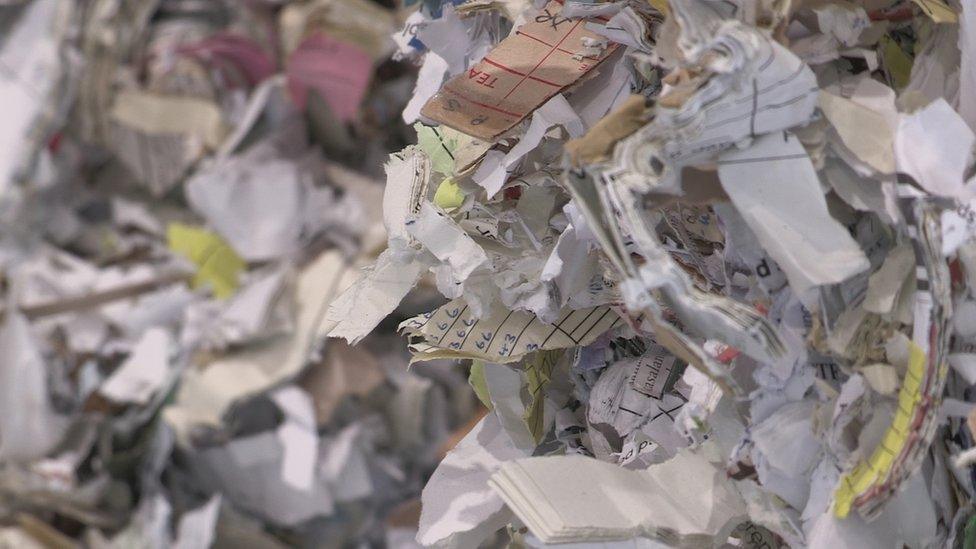
Thousands of bags of paper are shredded at USEL each month
Confidential Stormont papers turned into toilet roll - it sounds good and the public will find the humour in it.
And while the joke is not lost on Bill Atkinson and he seems to enjoy it, he is keen to get past the puns.
He is the chief executive of a social enterprise which has won the contract to shred waste paper from the Northern Ireland Civil Service.
Thousands of bags of it turn up to be shredded at his social enterprise off Belfast's Shankill Road every month.
The Ulster Supported Employment and Learning facility (USEL), external assists people with disabilities and health conditions to gain employment.
Secure tagging system
For now, the contract is supporting 15 jobs at the facility but as more civil servants return to the office the volume of paper and the number of workers needed to shred it is expected to grow.
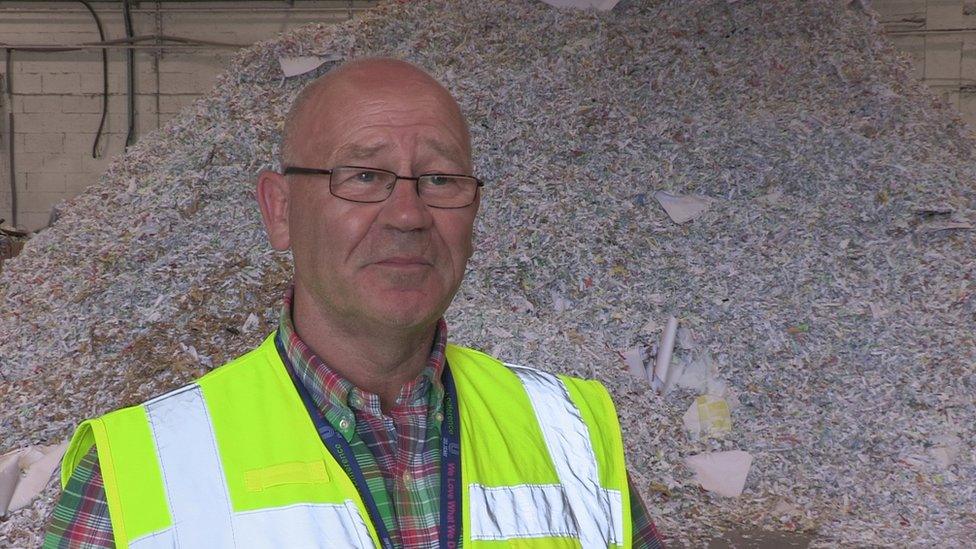
Bill Atkinson is the chief executive of USEL
"The more successful we are, the more jobs we create and the more people with disabilities and health conditions we support," said Mr Atkinson.
"As a business, we treat the contract as a highly valued asset."
Roughly a quarter of a million bags of civil service documents are sent for shredding each year and confidentiality and security is taken very seriously.
The bags are logged all the way to the site through a secure tagging system and shredded immediately on arrival.
They are then chopped into tiny pieces, making them unreadable.
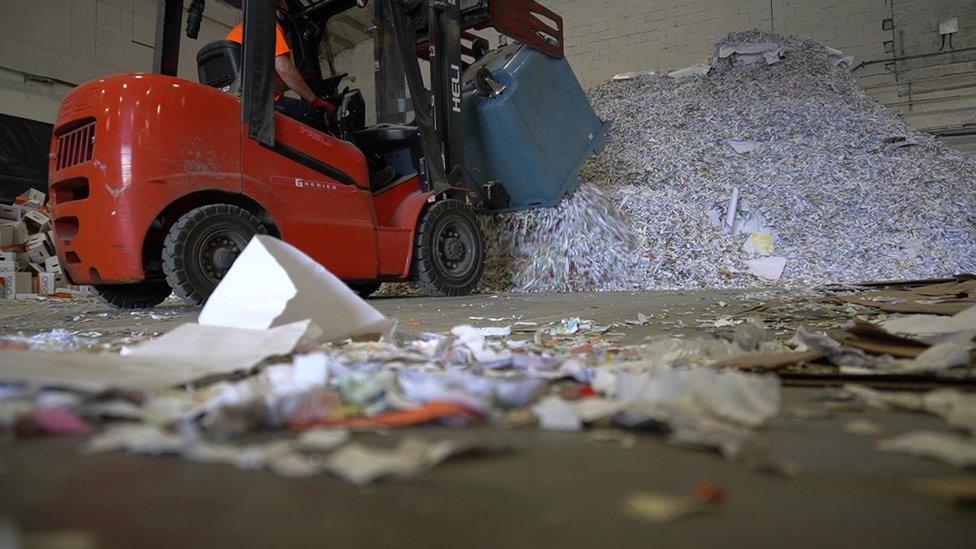
The bags are shredded and baled up before being sent off to paper mills
Those pieces are then baled up and sent off to paper mills, where they are turned into toilet roll and other paper products like napkins and tissues.
It is a neat way of dealing with the mountain of waste paper pumped out by the civil service each year.
Focus on ability, not disability
It is also environmentally friendly, promotes a circular economy and provides valuable employment.
Mr Atkinson said the focus was not on disability but on ability.
He pointed out that USEL was competing for contracts on the basis of quality and price and has invested several hundred thousand pounds in equipment to help with that.
"We're looking for work that we can generate a return on in order to employ more people," he said.
"There's a value in almost everything - cardboard, paper, carpets.
"We have to stop looking at these kinds of items as waste and start to look at them as a resource.
"We bring items onto the island, we use it and then we bury it.
"We can't continue to bury stuff - we have to start thinking now about some of these waste materials in a different way."
- Published29 September 2020
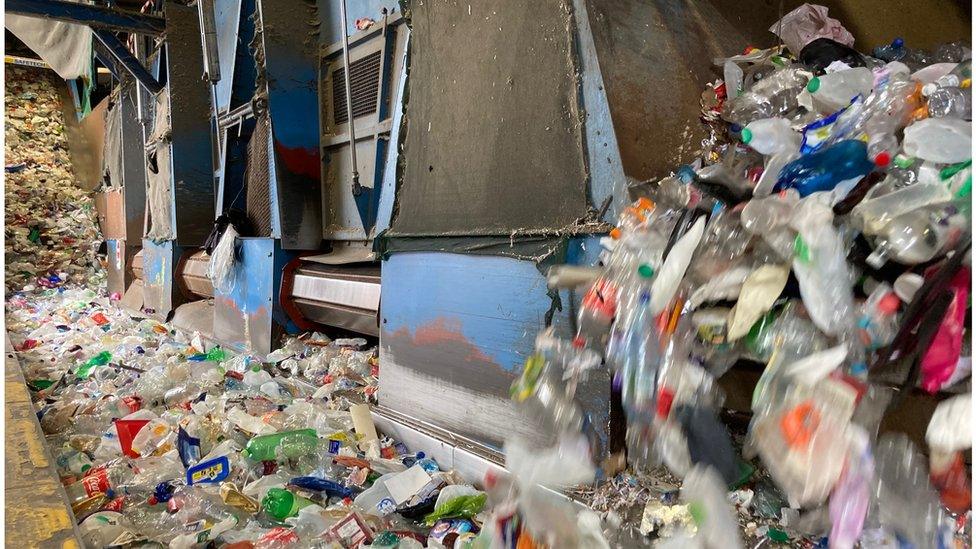
- Published24 October 2019
